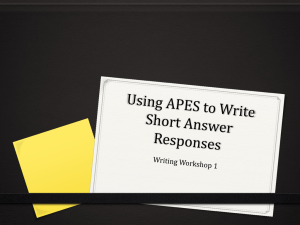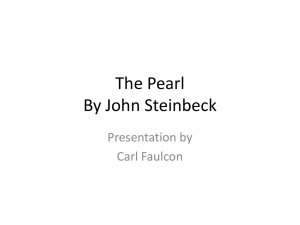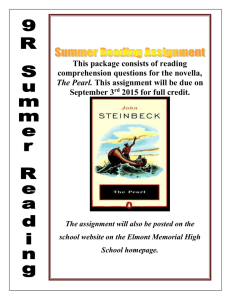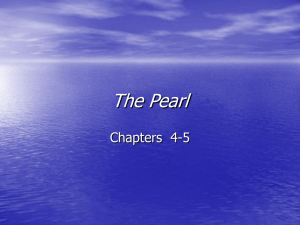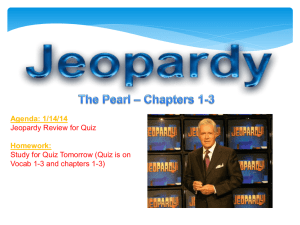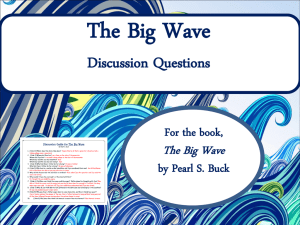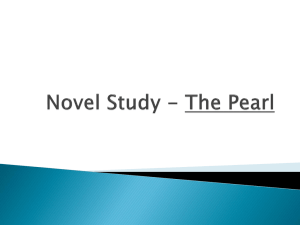Using APES to Write Short Answer Responses
advertisement
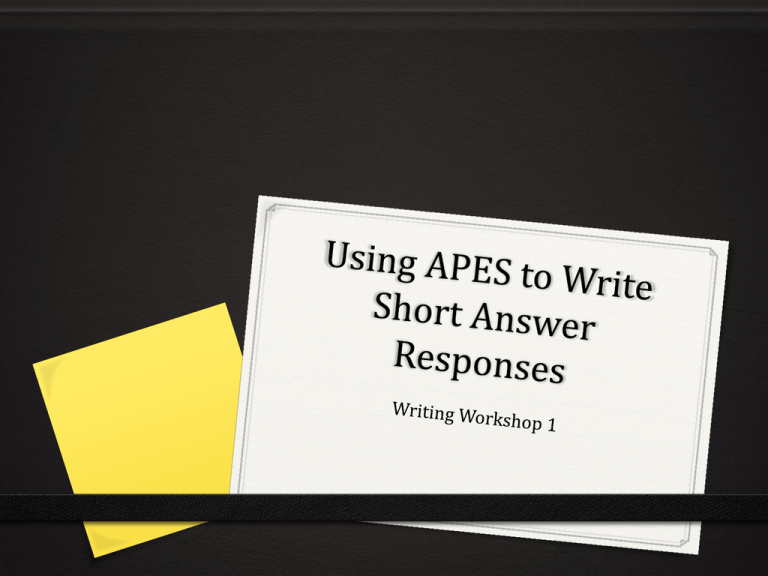
What is APES? 0 APES is an acronym that will help you remember the steps to writing a solid Short Answer Response on the STAAR test and in the classroom. 0 Think of APES as a checklist that you can use whenever you are answering a question based on a reading from class. 0 From now on, all of your written responses will need to be in APES format. A is for… 0 Answer the question. 0 This is the first sentence of your response. 0 Here, you rephrase the question into a complete sentence. 0 Never start an answer with the following statements: 0 “I think…” 0 “Yes, because…” or “No, because…” 0 “In my opinion…” A is for… 0 This is the most important step in answering any question based on the text. 0 According to the rubric for the Short Answer Responses, if you do not answer the question, you will earn an automatic score of zero out of a possible four. 0 For example, if the question asks why Helios is angry with Odysseus’ men, and your answer is about his threatening to take the sun to the Underworld, then you didn’t answer the question. This is an automatic grade of zero. A is for… 0 Read the following example. Locate the statement that matches the A part of APES: 0 “Helios is upset because Odysseus’ men ate his cattle. In a fiery rampage on Mount Olympus, Helios threatens to take the sun to ‘light the dead men in the Underworld’ if Zeus does not punish Odysseus’ men for slaughtering his ‘peaceful kine.’ Zeus understands that he cannot allow Helios to take the sun to the Underworld, so he assuages Helios’ grief by killing Odysseus’ men. The only survivor is Odysseus because he was not a part of the slaughter.” A is for… 0 It is your turn to try. 0 Read the following questions. Write the first line on your worksheet. Remember that this first line is for the A part of Apes; you are answering the question. 0 How does Kino feel about the prospect of Coyotito being able to attend school? 0 Starting in chapter four, why does Juana believe that the pearl is evil? 0 Describe how the doctor feels about Kino’s race. P is for… 0 Proof! You can’t make a statement about a text without providing proof to back up your argument. 0 Relate this to lawyers in the courtroom. They can’t just say, “Justin stole the clothes from the store!” They have to provide PROOF to PROVE that Justin stole the clothes. 0 When writing about texts, your proof comes in the form of textual evidence (quotes from the text). Embedding Quotes (P is for…) 0 When you add a quote from a text, you can’t just plop it in and call it a sentence. Here is an example from our question about Helios. 0 Here, the quote is plopped into the paragraph as its own sentence: “Helios is upset because Odysseus’ men ate his cattle. ‘So overweening, now they have killed my peaceful kine, my joy at morning when I climb the sky of stars…” 0 Don’t do this! 0 Here, only part of a quote is embedded into my own writing: Helios threatens to take the sun to ‘light the dead men in the Underworld’ if Zeus does not punish Odysseus’ men for slaughtering his ‘peaceful kine.’ 0 Do this! Embedding Quotes (P is for…) 0 Can you see the difference? 0 One of the key goals when you embed a quote is to use ONLY THE MOST IMPORTANT PART of the quote as a piece of your own sentence. Look at the correct way of doing this again: 0 “Helios threatens to take the sun to ‘light the dead men in the Underworld’ if Zeus does not punish Odysseus’ men for slaughtering his ‘peaceful kine.’” Where are the pieces of the quote? Highlight them in your notes. Embedding Quotes (P is for…) 0 Please remember that your quote MUST relate to your answer. You can’t chose a quote that has NOTHING to do with what you are writing about. Keep this in mind: your QUOTE is your PROOF about your ANSWER to the question. 0 Poor quote = poor proof = question unanswered = failing score Using TSQ for Embedding Quotes (P is for…) 0 Embedding quotes can be difficult sometimes. How do you start? Where do you put the quote? 0 This video can help you embed your quotes by introducing a strategy called TSQ. It was one of your homework videos and it is extremely helpful. 0 Please take your notes on your worksheet. TSQ Video (P is for…) Embedding Quotes (P is for…) 0 TIP: Begin a sentence that has an embedded quote with your words first. Then, smoothly incorporate your quote into your sentence. 0 Avoid using phrases in your quotes like “he says” or “states” or “she says.” This is boring for your reader and shouts “I AM NOT ABOUT TO QUOTE SOMETHING FROM THE TEXT!” It is not sophisticated writing. 0 Make sure your verbs are in present tense. 0 When necessary, change all first person pronouns (I, me, us, we) to third person pronouns (him, he, they) by using brackets. 0 “In a fiery confrontation on Mount Olympus, Helios exclaims that Odysseus’ men ‘killed [his] peaceful kine, [his] joy in the morning.’” P is for… 0 It is your time to practice. Let’s do two together, and then you will do the last one on your own. We will use our original questions from slide six: 0 How does Kino feel about the prospect of Coyotito being able to attend school? 0 Kino feels a strong sense of pride at the thought of Coyotito being able to attend school. When Kino and Juana are sitting in their home after Kino finds the pearl, Kino’s “face shone with prophecy” as he tells everyone how his son will “read and open the books” and “make numbers, and these things will make us free because…he will know and through him we will know.” P is for… 0 Here is the second question. 0 Starting in chapter four, why does Juana believe that the pearl is evil? 0 Juana believes that the pearl is evil because it has brought danger to her family. For example, after Kino is attacked outside his hut after failing to sell the pearl, Juana implores Kino to “crush it between two stones” or “throw it back in the sea where it belongs” before the pearl “destroys [them].” P is for… 0 See the color codes for the first part of the two Short Answer Responses we just did. Working with a partner, see if you can identify what the colors stand for. Your answers should be terms that we have already covered. Write your answers on your worksheet. 0 Kino feels a strong sense of pride at the thought of Coyotito being able to attend school. When Kino and Juana are sitting in their home after Kino finds the pearl, Kino’s “face shone with prophecy” as he tells everyone how his son will “read and open the books” and “make numbers, and these things will make us free because…he will know and through him we will know.” P is for… 0 Juana believes that the pearl is evil because it has brought danger to her family. For example, after Kino is attacked outside his hut after failing to sell the pearl, Juana implores Kino to “crush it between two stones” or “throw it back in the sea where it belongs” before the pearl “destroys [them].” (Hint: The answer for the P part is related to TSQ.) 0 Here is something to think about: why is the pronoun them in brackets? Look back to your notes if you can’t remember right away. P is for… 0 Now you try. Working by yourself, try to answer the last question on your own. Write your answer on your worksheet. Your goal is to make your answer sound like the two that we have already done. Look at the examples before writing your own. Then check your answer against the examples. You will check your answer with a partner at the end of ten minutes. 0 Describe how the doctor feels about Kino’s race. E is for 0 Explanation. 0 In a sentence or two, you will explain how your quote relates to your answer. 0 Remember that your quote must always relate to your answer, the first line in your response. E is for… 0 This is one of the harder parts of the writing process because it requires you to really think about what you are going to say about the answer. 0 To help you get started, you can use transition words to start off your sentence. 0 Example: “Helios is upset because Odysseus’ men ate his cattle. In a fiery rampage on Mount Olympus, Helios threatens to take the sun to ‘light the dead men in the Underworld’ if Zeus does not punish Odysseus’ men for slaughtering his ‘peaceful kine.” Zeus understands that he cannot allow Helios to take the sun to the Underworld. Consequently, he assuages Helios’ grief by killing Odysseus’ men. E is for… 0 Example: “Helios is upset because Odysseus’ men ate his cattle. In a fiery rampage on Mount Olympus, Helios threatens to take the sun to ‘light the dead men in the Underworld’ if Zeus does not punish Odysseus’ men for slaughtering his ‘peaceful kine.’ Zeus understands that he cannot allow Helios to take the sun to the Underworld. Consequently, he assuages Helios’ grief by killing Odysseus’ men. 0 We have two sentences for this part of APES. You can have one or two depending on your answer needs. E is for… 0 Zeus understands that he cannot allow Helios to take the sun to the Underworld. Consequently, he assuages Helios’ grief by killing Odysseus’ men. 0 With a partner, discuss how these two sentences are related to my original answer to the question: Helios is upset because Odysseus’ men ate his cattle. 0 Does everything relate back to this answer? Is everything connected? If the answer is yes, you are on the right path. If it’s not, then you need to do a little editing. E is for… 0 Here are the E sentences for our first two practice questions: 0 Kino feels a strong sense of pride at the thought of Coyotito being able to attend school. When Kino and Juana are sitting in their home after Kino finds the pearl, Kino’s “face shone with prophecy” as he tells everyone how his son will “read and open the books” and “make numbers, and these things will make us free because…he will know and through him we will know.” In spite of Coyotito’s young age, Kino believes that his son has the potential to liberate his people from ignorance and oppression if he is able to attend school. E is for… 0 Juana believes that the pearl is evil because it has brought danger to her family. For example, after Kino is attacked outside his hut after failing to sell the pearl, Juana implores Kino to “crush it between two stones” or “throw it back in the sea where it belongs” before the pearl “destroys [them].” Juana’s wealth is not associated with material goods or money. For this reason, Juana does not care about the money the pearl may bring since she accredits the hazardous and possibly deadly situation for her family to the pearl. E is for… 0 With your partner, discuss how the E sentences for our first two practice paragraphs are related to the answers. 0 Find the transitional words/phrases that I used to make my answers flow. E is for… 0 It is now your turn to try. Take a few minutes to write the E sentences for the third practice question. You will have an opportunity to check it with your partner. 0 Focus on addressing how the quote relates to and supports your answer to the original question. 0 Stay on topic! S is for… 0 Special Closing Statement. 0 This is the last one or two sentences of your answer. 0 Wrap up your thoughts and claims that you made in your answer. 0 Your goal with the S part of APES is to wrap up all of your ideas into a nice little package of coherent thought. 0 If you get really stuck, you can use a new transitional word or phrase such as “As a result…” or “What this shows…” S is for… 0 WATCH OUT for these closing statement traps: 0 Do not use “In conclusion…” 0 Do not repeat word-forword what you have already said. 0 Don’t bring up a new idea that you haven’t already addressed. S is for… 0 Let’s look at the questions that we have already done and see how the S part of APES works. 0 Kino feels a strong sense of pride at the thought of Coyotito being able to attend school. When Kino and Juana are sitting in their home after Kino finds the pearl, Kino’s “face shone with prophecy” as he tells everyone how his son will “read and open the books” and “make numbers, and these things will make us free because…he will know and through him we will know.” In spite of Coyotito’s young age, Kino believes that his son has the potential to liberate his people from ignorance and oppression if he is able to attend school. For these reasons, Kino places a significant amount of hope and monetary reliance on the pearl to offer Coyotito a chance at a better life. S if for… 0 Juana believes that the pearl is evil because it has brought danger to her family. For example, after Kino is attacked outside his hut after failing to sell the pearl, Juana implores Kino to “crush it between two stones” or “throw it back in the sea where it belongs” before the pearl “destroys [them].” Juana’s wealth is not associated with material goods or money. For this reason, Juana does not care about the money the pearl may bring because she accredits the hazardous and possibly deadly situation for her family to the pearl. Despite the life improvements the pearl may bring for her family, particularly Coyotito, Juana is not wiling to risk the life of her family for possible wealth. S is for… 0 You have made it this far! Now, it is time to finish your practice question. 0 Take a few minutes to think of how you can wrap up everything you have said already without repeating yourself. Then write it down. 0 Don’t leave the reader hanging! TIPS for using APES 0 Stay on topic! If you don’t stay on topic, you will not pass this portion of the test. Where do you find your topic? Look to your answer to the question. Everything should relate back to this. TIPS for using APES 0 “Yes” and “No” answers are not acceptable. Do not start any of your answers with “yes” or “no.” 0 Remember that you are starting your response with an answer to the question. TIPS for using APES 0 Don’t use first person pronouns (I, me, we, us…). 0 To be honest, the questions are not asking about you at all. I don’t want to know anything about you! I want to know about the text! 0 Stay text focused. TIPS for using APES 0 Whatever you do, make sure you at least do the following: 0 Answer the question. 0 Provide proof (textual evidence). 0 Explain your proof in relation to your answer. 0 Sum it all up.
